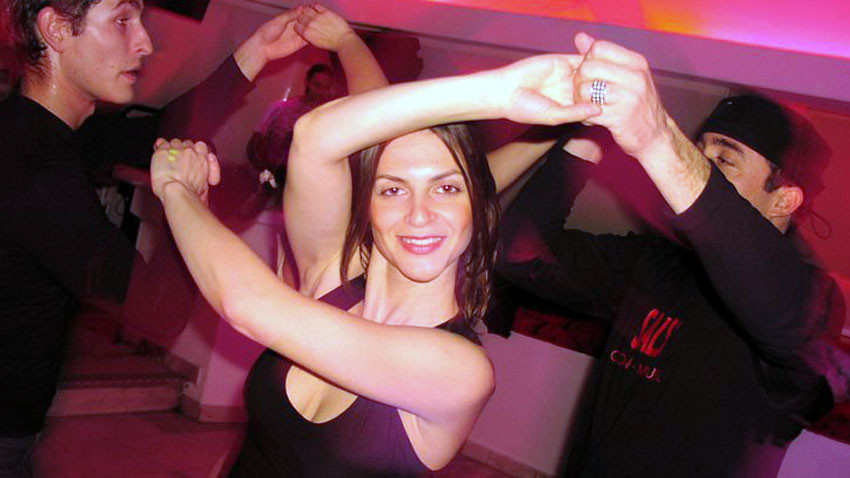
In the days of socialism, trips outside the Iron Curtain were a privilege for few. But in a quarter of Sofia called ‘Student's City’, one could hear speech from different parts of the world. In those years, the first Latino parties in Bulgaria were organized there. With the coming of democracy, the first commercial Latin parties were also organized. In the years 1992-1993 the owner of Anaconda club had a friend who was half-Cuban. The two invited Rodolfo Zanoni Gomez from Ecuador to DJ and he became legendary name among Latino fans in Bulgaria.
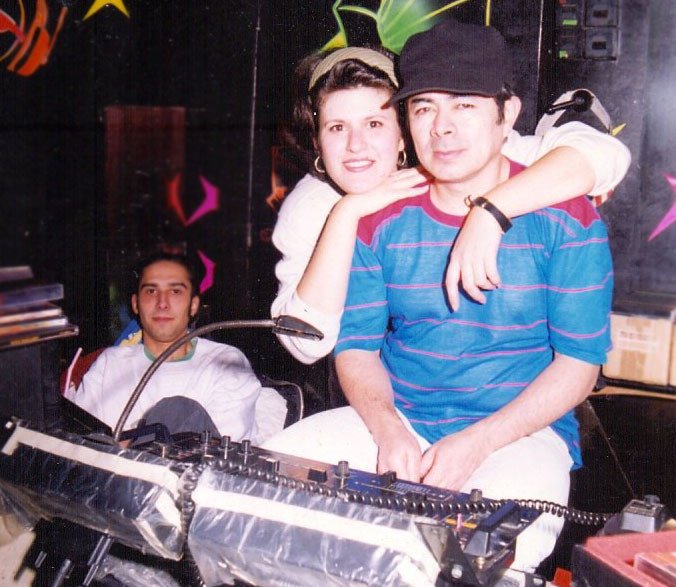 "For people living in a foreign country, there are two basic rules - to respect the laws and traditions of this country and to convey the best of their culture. In my case, this was the music and dances from my continent," Rodolfo said. "These were the best parties as the commercial spirit of today did not exist. Dance moves had no names... At first there were many women coming but men were more reluctant and thought this type of dancing was not for men. It was strange to me that in Bulgarian discos people were dancing separately in groups of men and women. Disco music was popular back then. In Latin America people are dancing with a partner creating a special energy between them. Gradually, men started coming to our parties, as well and they proved to be really good dancers.”
"For people living in a foreign country, there are two basic rules - to respect the laws and traditions of this country and to convey the best of their culture. In my case, this was the music and dances from my continent," Rodolfo said. "These were the best parties as the commercial spirit of today did not exist. Dance moves had no names... At first there were many women coming but men were more reluctant and thought this type of dancing was not for men. It was strange to me that in Bulgarian discos people were dancing separately in groups of men and women. Disco music was popular back then. In Latin America people are dancing with a partner creating a special energy between them. Gradually, men started coming to our parties, as well and they proved to be really good dancers.”
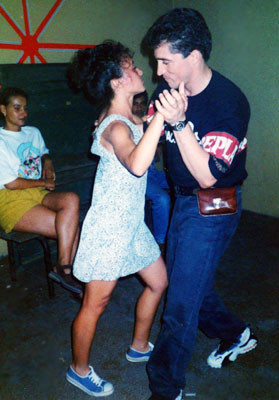 Club 33 is where the first Latin dance lessons in Bulgaria took place. "A Bulgarian dentist, called Theo, who had lived in Germany and had learned salsa there, agreed to give salsa lessons for free an hour before the start of each party,” Rodolfo says. During the parties back then the best dancers were from Venezuela, Cuba and the Dominican Republic. "The best dancers are from Central America," the DJ says. He remembers that there used to be a table in the club reserved for diplomats who came regularly. Back then in Sofia there used to be embassies of Peru, Mexico, Argentina, Brazil, Venezuela, Ecuador, Colombia, Panama and others. Today there are just four embassies of South American countries in Bulgaria.
Club 33 is where the first Latin dance lessons in Bulgaria took place. "A Bulgarian dentist, called Theo, who had lived in Germany and had learned salsa there, agreed to give salsa lessons for free an hour before the start of each party,” Rodolfo says. During the parties back then the best dancers were from Venezuela, Cuba and the Dominican Republic. "The best dancers are from Central America," the DJ says. He remembers that there used to be a table in the club reserved for diplomats who came regularly. Back then in Sofia there used to be embassies of Peru, Mexico, Argentina, Brazil, Venezuela, Ecuador, Colombia, Panama and others. Today there are just four embassies of South American countries in Bulgaria.
In those times without the Internet the diplomats were those who brought new music to the DJ. Another part of the records was brought from Switzerland where he used to do business.
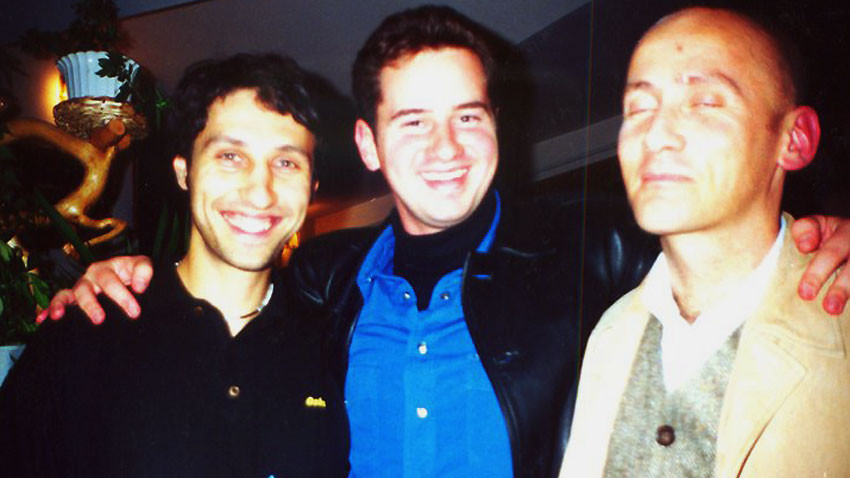
Mikhail Dimov came to one of those parties and in 1998, together with Theo, he created the "Salsa Doctors" - a group of DJs who decided to oppose the emerging commercial approach to parties. They chose the name “Salsa Doctors” because Theo is a dentist, and according to Misho, Salsa was a medicine: "We are like healers with music and dancing. When people dance, when they are smiling, loaded with emotion, it's medicine. We've always played a lot of emotional music, not modern one."
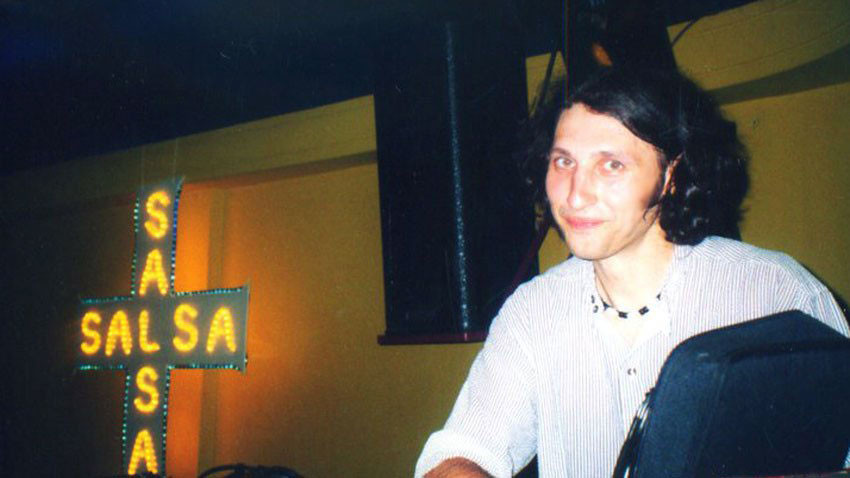
But let's go back to 1995 when Misho first went to Club 33. "I was dizzy. A whole new universe was revealed to me. It was a unique mix of Salsa, Merenge, Cumbia, African music, blues... There were people from Europe, Latin America, Africa. I thought I was not in Bulgaria anymore," Misho recalls. "We were learning to dance, watching and talking to the people. Emotion was very important. What was happening back then was much closer to parties in Latin America than it is now. But at one point the culture changed. Many dance schools opened. Competitive dancing emerged. Back then there was no competition. There was friendship, emotion and partying. It was not a trend. One went to the party because they loved the music and dancing.”
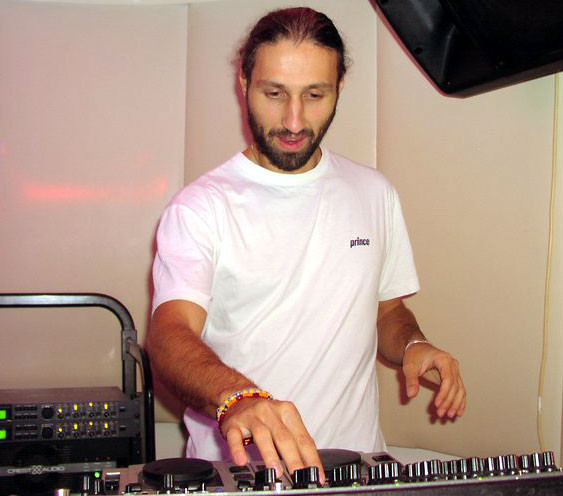 Speaking about what made him become a DJ, Misho says that there were two kinds of people–some are attracted by the unknown and unusual, while others are scared of this.
Speaking about what made him become a DJ, Misho says that there were two kinds of people–some are attracted by the unknown and unusual, while others are scared of this.
"I love learning different musical languages. I study them the way a polyglot studies a new language. I'm going through some songs that I like and my appetite grows," Misho says. He expresses regrets that salsa is being replaced by Reggaeton. “It is difficult to find the old salsa of the people who live close to the land. I have been dreaming of a return to the old style of Buena Vista, to the respect towards the lady, who is not an acrobatic instrument. Sooner or later it will happen,” Mihail Dimov says as the Salsa Doctors celebrate their 20th anniversary.
English: Alexander Markov